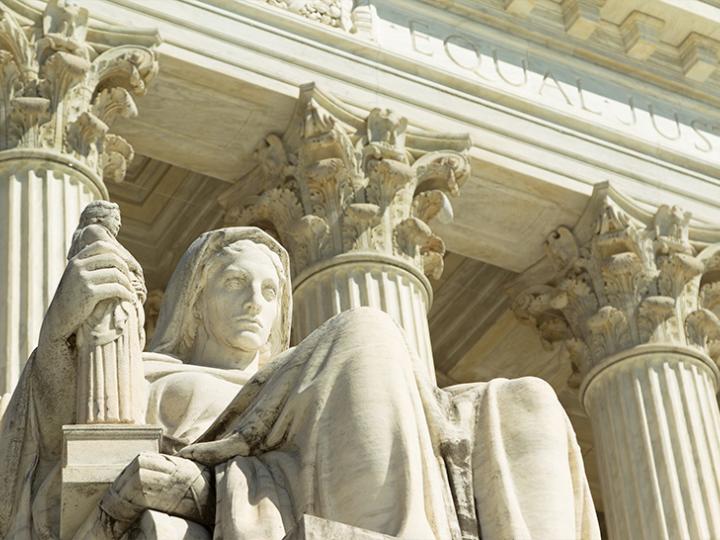Recently, in interpreting the False Claims Act’s scienter requirement, the U.S. Supreme Court turned to the traditional, common-law scienter requirements for fraud set forth in the Restatement of the Law Second, Torts, and the Restatement of the Law Third, Torts: Liability for Economic Harm.
In United States ex rel. Schutte v. Supervalu Inc., Nos. 21-1326 and 22-111 (June 1, 2023), relators filed qui tam actions under the False Claims Act, 31 U.S.C. § 3729(a), on behalf of the United States against operators of retail drug pharmacies nationwide, alleging that the pharmacies overcharged federal Medicare and Medicaid programs for years when seeking reimbursement for prescription drugs that the pharmacies provided to participants in those programs. Under Medicare and Medicaid, the pharmacies were required to report their “usual and customary” drug prices, which acted as a cap on the amount of their potential reimbursement. The relators alleged that the pharmacies knowingly submitted false claims to the government in violation of the False Claims Act when they failed to disclose that the majority of their customers participated in price-match programs through which the customers actually paid much lower, discounted prices for most drugs rather than the inflated prices that the pharmacies reported as their “usual and customary” prices.
As relevant here, the two essential elements of a violation of the False Claims Act are the falsity of the claim and the defendant’s knowledge of the claim’s falsity. As to the first element, the U.S. District Court for the Central District of Illinois found that the pharmacies submitted false claims, because the discounted prices were their “usual and customary” prices. Proceeding to the second element, however, the district court concluded that the pharmacies could not have acted “knowingly,” because their actions were consistent with an objectively reasonable interpretation of the phrase “usual and customary.” Accordingly, the district court granted summary judgment to the pharmacies.
The U.S. Court of Appeals for the Seventh Circuit affirmed the district court’s decision, explaining that, regardless of what a defendant actually believed when submitting a false claim to the government, the false claim had to be objectively unreasonable as a matter of law before the defendant could be held liable for “knowingly” submitting the claim in violation of the False Claims Act. Specifically, the Seventh Circuit relied on the two-step inquiry set forth in Safeco Ins. Co. of America v. Burr, 551 U.S. 47 (2007) “for ascertaining whether a defendant acted recklessly or knowingly,” which asked, in pertinent part, “whether a defendant’s acts were consistent with any objectively reasonable interpretation of the relevant law that had not been ruled out by definitive legal authority or guidance,” “regardless of whether the defendant actually believed such an interpretation at the time of its claims.”
Associate Justice Clarence Thomas, delivering the opinion for a unanimous Court, reversed and remanded to the Seventh Circuit for further proceedings, holding that, for purposes of the False Claims Act, the relevant inquiry was whether the defendant knew that the claim was false. The Court explained that the False Claims Act’s three-part test for determining whether a defendant acted “knowingly” “largely track[ed] the traditional common-law scienter requirement for claims of fraud,” as set forth in Restatement of the Law Second, Torts § 526 and Restatement of the Law Third, Torts: Liability for Economic Harm § 10. The False Claims Act’s standards focused primarily on what the defendant thought and believed, consistent with traditional common-law fraud, which, the Court noted—quoting Restatement of the Law Third, Torts: Liability for Economic Harm § 10, Comment a—“ordinarily ‘depend[ed] on a subjective test’ and the defendant’s ‘culpable state of mind.’”
Turning to the Seventh Circuit’s discussion of the Safeco decision, Justice Thomas reasoned that nothing in Safeco suggested that courts ought to consider facts that a defendant neither knew nor had reason to know when the defendant made a false claim. On the contrary, the Court cited Restatement of the Law Second, Torts § 500 in pointing out that the common law of recklessness contained an objective standard, because it encompassed actions involving an unjustifiably high risk of harm that was either known or so obvious that it should have been known. Accordingly, the Court explained that it “[did] not look to legal interpretations that [the pharmacies] did not believe or have reason to believe at the time they submitted their claims.” In this regard, Justice Thomas pointed to evidence that the pharmacies had, years prior, received notices from a pharmacy-benefit manager and from state Medicaid agencies stating that the phrase “usual and customary” referred to discounted prices. In addition, there was evidence that the executives of the pharmacies had expressed concerns about letting state agencies that administered the Medicare and Medicaid programs find out about their discounted prices.
The Court rejected the pharmacies’ argument that many courts appeared to have stated, as a general rule, that misrepresentations of law were not actionable at common law. The Court noted that, under Restatement of the Law Second, Torts § 545, “statements involving some legal analysis remain[ed] actionable if they ‘carr[ied] with [them] by implication’ an assertion about ‘facts that justif[ied]’ the speaker’s statement.” The Court reasoned that the pharmacies, in reporting their drug prices to the government, were not making a representation regarding the legal interpretation of the phrase “usual and customary,” but rather were saying, “this is what our ‘usual and customary’ prices are.” In other words, the pharmacies were plainly implying facts about their prices that were not known to the recipients of their claims.
Read the full opinion here.
